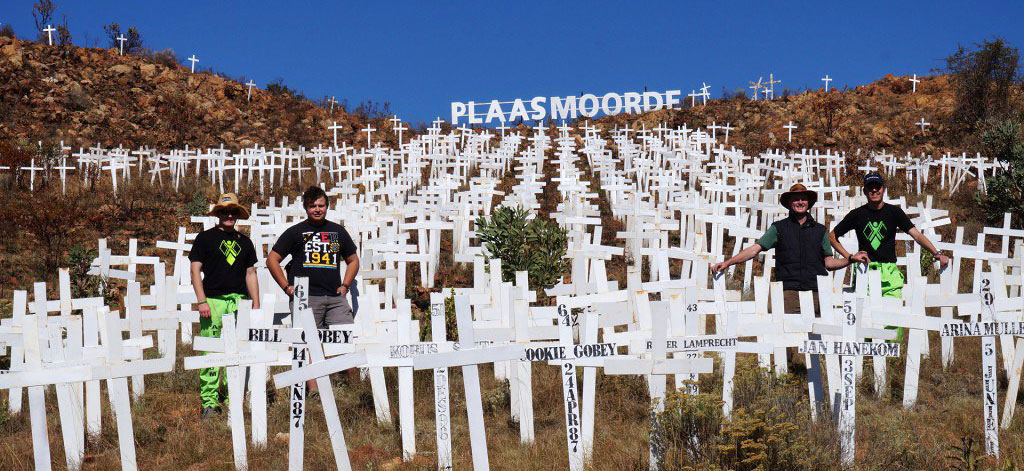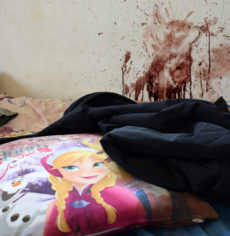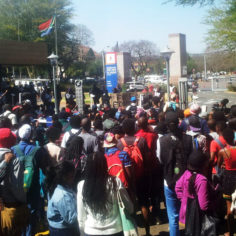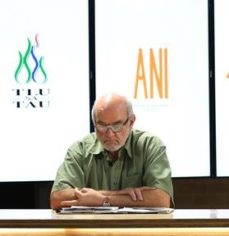Farm attacks and farm murders have increased for a sixth consecutive year in 2016. This the highest death toll since 2008 when 79 people were murdered in such attacks.
Published: December 9, 2016, 12:32 pm
The number of attacks on white farmers, often military-style raids, for the year now totals 16 more than last year.
An Afrikaner Civil rights group AfriForum together with the Transvaal Agricultural Union of South Africa (TAU-SA) on Wednesday announced the official figures during a media conference in Pretoria.
The 2016 figure of 64 murders has only been calculated up to 30 November 2016. According to Gen. Chris van Zyl, Assistant General Manager of TAU SA, December 2016 is already showing a further increase with an estimated ratio of nearly one murder per day for the month, which makes the total farm-murder figure for 2016 the highest for the past seven years.
“A further disturbing trend is the evident increasing use of technology by farm attackers. We have CCTV proof of a device used by farm attackers that represses radio and cell phone communication as well as alarms. This equipment falls in the same league as military equipment that requires an end-user certificate,” says Van Zyl.
Van Zyl explained: “An increase in farm attacks, and a chance to get away with it, are greater and gangs are more organized.” He added: “Crime Intelligence should play a more prominent role.” Van Zyl said farm security patrols have increased as a result of poor security.
Ten months ago, the acting National Police Commissioner Lt-Gen. Khomotso Phahlane, contradicted earlier statements by the ruling ANC and Police Minister that these crimes will be dealt with as ordinary crimes and not as a priority.
A campaign for upgrading these crimes to priority status has been ongoing for a number of years now. Late last year a delegation went to the United Nations asking for international pressure on the SA government to prioritise these crimes.
Lorraine Claasen, a Crime Analyst at AfriForum’s Research Institute (ANI), noted during the conference that she was able to identify certain patterns in her analysis of various farm attacks and murders.
As many as 13 attackers are deployed per incident, research shows. Also, farm attacks are undoubtedly planned in detail, says Claasen. The highest death toll in a single attack in the past year was six people. Victims are often tortured for hours before they are killed, in many instances in front of their spouses or children. Women are invariably raped.
The attackers specifically target the farmer, or the breadwinner during an attack, Claasen noted. It is frequently the first person to be attacked or murdered and his or her dependants are often not killed. The average age of the murder victims was 56 years, the report shows.
Claasen also mentioned that ANI is currently busy updating its data with the names of farm workers who were also the victims of farm murders. AfriForum is furthermore planning various campaigns and projects for 2017 to crack down on farm murders and farm attacks.
Ernst Roets, AfriForum’s Deputy CEO, said during the media conference that he is especially concerned about the potential connection that exists according to him between outrageous political utterances and farm murders.
“Currently a climate prevails in the country where it became popular to make racist and hate speech remarks against white people. Even though we are extremely careful making assumptions when it comes to farm murders and attacks, we view this possible trend in a very serious light.”
Roets had told sapromo.com earlier: “The real test ultimately lies in the figures. We believe that a sustainable strategy against farm murders is impossible without prioritisation by the police and the availability of the necessary resources.”
The damning report comes in the wake of a lengthy exposé by FWM this week, on the ongoing violence against whites on farms in South Africa.
With food prices becoming increasingly onerous for many if not most South Africans, the latest report on farm murders makes for disturbing reading.
South African Rural Development and Land Reform Minister Gugile Nkwinti has candidly acknowledged that the billions spent in the past two decades have reduced food security because 90 percent of the farms re-distributed to black farmers are no longer productive.
According to a 2015 World Wide Fund for Nature (WWF) study, 95 percent of the country’s formal-sector food is produced by just 3 percent of the country’s white farmers and the government’s antipathy to white farmers and its proposed policies are driving an increasing number of them to leave the country.
Thousands of farms are currently up for sale. Vast swathes of once-productive farm land now lie fallow as a result of the ANC’s failed land-reform policies as well as the ongoing violence.
While the ANC constantly berates the white farming community for “racism” without providing any proof, its own representatives are hardly the ideal role models in this regard.
Commentators who speak out against the ANC’s racism against whites, often receive death threats.
The Transvaal Agricultural Union has tracked farm murders since 1990 and, during this time, 1848 people have been murdered in farm attacks.
According to TAU statistics this number included 1187 farmers, 490 members of their families, 147 farm employees and 24 visitors to these farms who found themselves in the wrong place at the wrong time.
The black Marxist organisation, the South African National Civic Organization (SANCO) pretends however that farm murders are not about race.
The arrest of a mentally unstable white relative of a white farmer killed at his smallholding near Thabazimbi on Friday illustrates that not all farm attacks involve race, Sanco said on Sunday.
“The fact that the arrested suspect is a relative [of] the murdered 54-year-old… highlights that some callous farm murders are not politically and or racially motivated but are crimes of passion involving family disputes,” Sanco spokesperson Jabu Mahlangu said in a statement.
But this murder was not included in the report released by the TAU-SA and Afriforum as a farm murder.
All rights reserved. You have permission to quote freely from the articles provided that the source (www.freewestmedia.com) is given. Photos may not be used without our consent.










